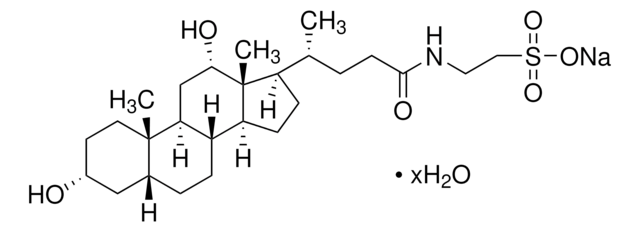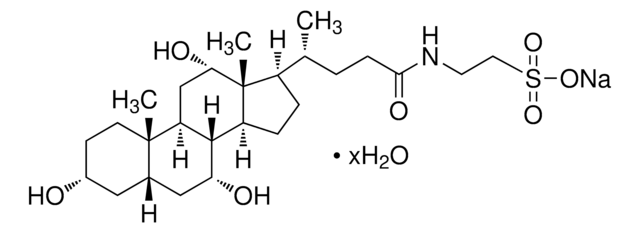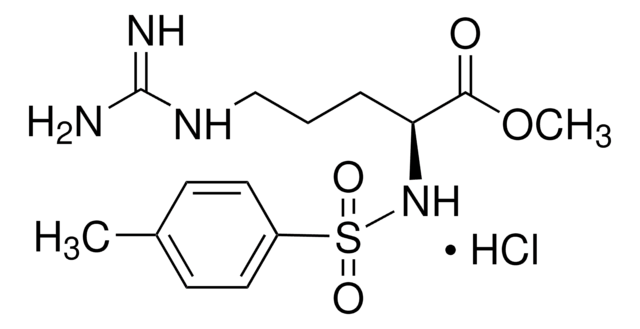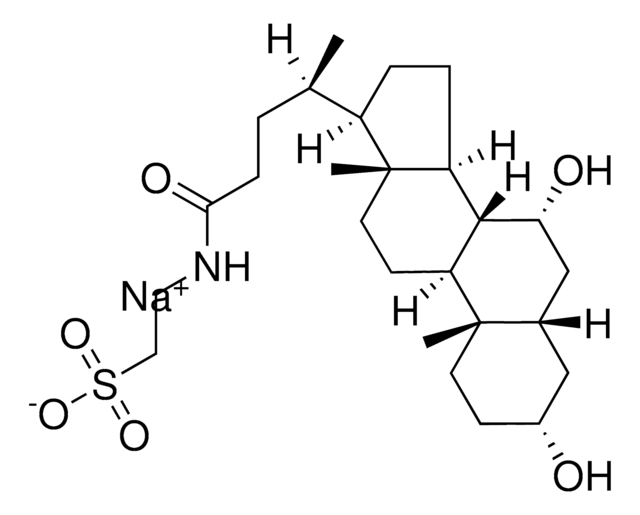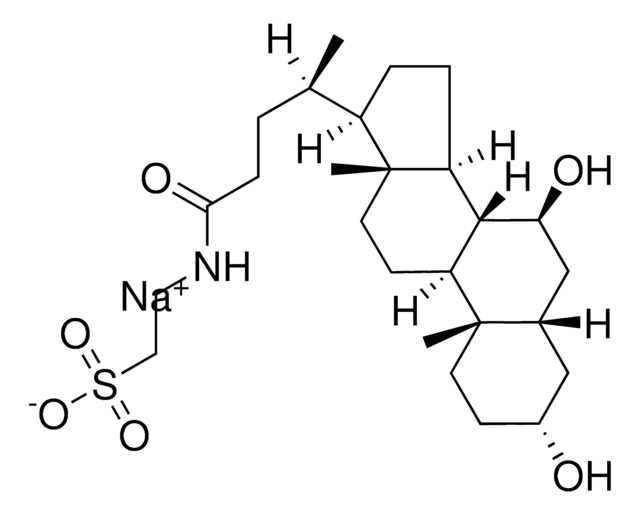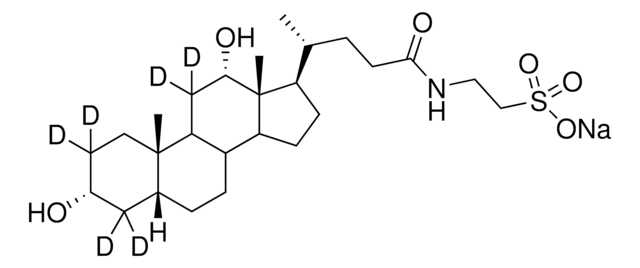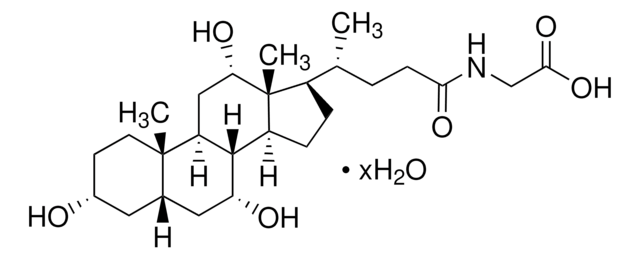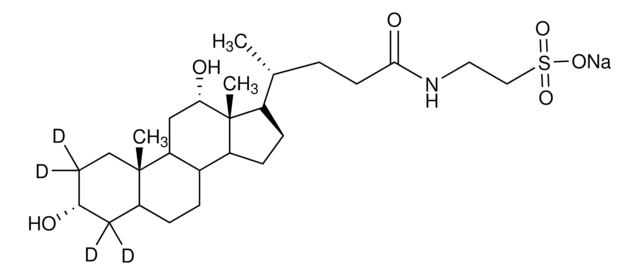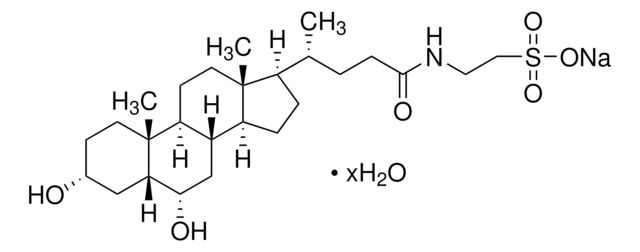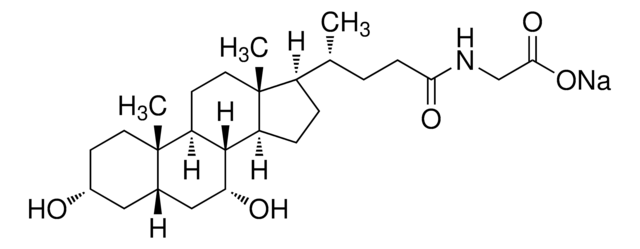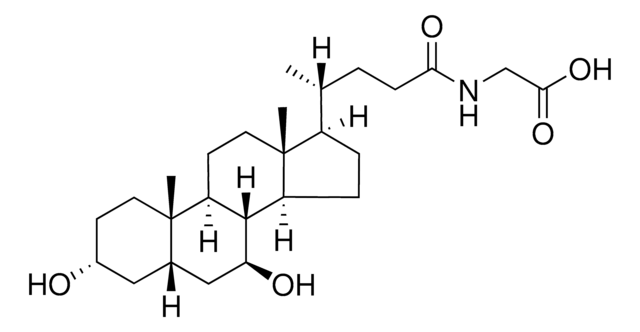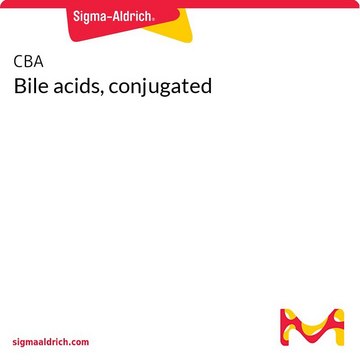T0875
Sodium taurodeoxycholate hydrate
≥95% (HPLC)
Synonym(s):
2-([3α,12α-Dihydroxy-24-oxo-5β-cholan-24-yl]amino)ethanesulfonic acid, Taurodeoxycholic acid sodium salt hydrate
About This Item
Recommended Products
description
anionic
Quality Level
Assay
≥95% (HPLC)
mol wt
micellar avg mol wt 3100
aggregation number
6
CMC
1-4 mM (20-25°C)
application(s)
sample preservation
SMILES string
O.[Na+].C[C@H](CCC(=O)NCCS([O-])(=O)=O)[C@H]1CC[C@H]2[C@@H]3CC[C@@H]4C[C@H](O)CC[C@]4(C)[C@H]3C[C@H](O)[C@]12C
InChI
1S/C26H45NO6S.Na.H2O/c1-16(4-9-24(30)27-12-13-34(31,32)33)20-7-8-21-19-6-5-17-14-18(28)10-11-25(17,2)22(19)15-23(29)26(20,21)3;;/h16-23,28-29H,4-15H2,1-3H3,(H,27,30)(H,31,32,33);;1H2/q;+1;/p-1/t16-,17-,18-,19+,20-,21+,22+,23+,25+,26-;;/m1../s1
InChI key
OLPIZAYYAVQETM-GGPRKOIFSA-M
Looking for similar products? Visit Product Comparison Guide
Related Categories
Application
Storage Class Code
11 - Combustible Solids
WGK
WGK 3
Flash Point(F)
Not applicable
Flash Point(C)
Not applicable
Personal Protective Equipment
Certificates of Analysis (COA)
Search for Certificates of Analysis (COA) by entering the products Lot/Batch Number. Lot and Batch Numbers can be found on a product’s label following the words ‘Lot’ or ‘Batch’.
Already Own This Product?
Find documentation for the products that you have recently purchased in the Document Library.
Customers Also Viewed
Protocols
This method is particularly useful in research into the role of individual bile acids as signaling molecules; suitable for clinical laboratories to investigate potential mechanisms linked to gut hormone profiles and glycemic control.
Related Content
Bile Acids (BA) are synthesized in the liver and play important roles in cholesterol homeostasis, absorption of vitamins and lipids, and various key metabolic processes.
Our team of scientists has experience in all areas of research including Life Science, Material Science, Chemical Synthesis, Chromatography, Analytical and many others.
Contact Technical Service
